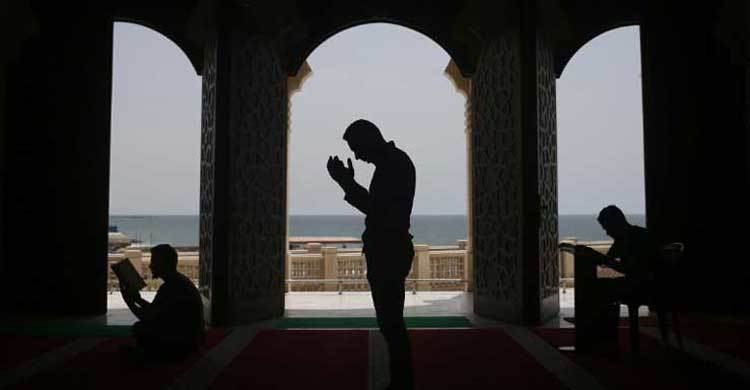The 2 fears Muslims face after NY imam’s killing

On Saturday afternoon, Maulama Akonjee, a 55-year-old old imam and Thara Uddin, 64, his assistant imam, were shot in the head and killed outside of the mosque that they serve in Queens, New York City.
Law enforcement has said the motivation for the killing is not clear at the moment - it may well prove to be unrelated to the victim’s faith.
But that`s not the way the killing is being received by Muslims from Queens, throughout New York City and pretty much everywhere else in the country. Many readily believe that these two men were targeted because of their faith and that this was a hate crime.
Are we wrong? Possibly. But in the current political climate being, why would we not feel targeted? Most people that I have spoken to in NYC have two fears: 1) that it could have been any one of us and 2) things are seemingly going to get a lot worse.
Islamophobia did not start with Donald Trump, but it definitely has escalated thanks to him and other Republican candidates who have sown distrust and loathing during this election season. From the perspective of many Muslims, the unchecked rhetoric coming from too many politicians in our country and much of Europe has made it seem fully justifiable to commit acts of violence against Muslims without any consequence.
Women, children and the elderly, in addition to people who are Hindu, Sikh and from numerous other backgrounds, have all been victims of attacks due to their actual and perceived associations with Islam and the racialization of the faith. With an election upon us, every day there is an increased likelihood of violence against Muslims.
I’m not indulging in hyperbole here. Georgetown University recently issued a report showing a direct increase in Islamophobia in the United States tied to the presidential election.
Its findings show that the number of attacks on Muslims is up from 2014: in 2015 alone there were ‘approximately 174 reported incidents of anti-Muslim violence and vandalism, including 12 murders; 29 physical assaults; 50 threats against persons or institutions; 54 acts of vandalism or destruction of property; 8 arsons; and 9 shootings or bombings, among other incidents.’
It’s more alarming when you break it down by month. The study shows that anti-Muslim attacks surged at numerous points correlating directly with rhetoric coming out of the election.
In December 2015 alone, there were 53 total attacks - that represents individual and at times multiple attacks each day. Each one of those numbers represents a person, some of them children, some of them women, some of them elderly. We won`t see their faces, the turmoil and anguish that their family members have felt or anything else that helps us to understand what it really is like to be Muslim at this time.
The headlines won’t reference them by name or provide other humanizing factors. Most won’t even have stories written about them at all. The only thing that will continue to be covered are the voices and comments made that lead towards this kind of violence existing in the first place.
The disparaging comments that Donald Trump has made over the campaign against minorities of all kinds - including Muslims, Latinos, African Americans, women and those with special needs - are but symptoms of a deeper and ever-growing bigotry that our nation must confront.
Every day seems to bring news of mass shootings, more hate displaced onto minorities and extreme voices from the Republican party - by turns bigoted and silent when it is strategic for their campaigns. We shouldn’t forget that it was Ben Carson who said that he would never let a Muslim into his cabinet and that a Muslim could never be president, Marco Rubio, who said he would be open to shutting down mosques if they inspire radicalization, and Ted Cruz, who said only those refugees fleeing ISIS who could prove they are Christian should be taken into our country.
They were scarcely called out then, and their words aren’t that different from what’s being said today.
It is statement like these that give rise and justification to those here and abroad who have burned down and vandalized mosques all over this country, who pushed a woman wearing headscarf onto train tracks, shot cab drivers, and even may have provided validation for three young men in New York who allegedly attacked a sixth-grade Muslim girl. As they punched her, beat her, tried to rip the scarf off her head, they allegedly called her ISIS.
I’d like to believe that Saturday’s horrendous attack is not a hate crime, and that in any case, it will be the last attack of a Muslim we will see. But it is hard to be optimistic as the elections in November draw nearer.
Bigotry and hatred against Muslims will be deemed unacceptable only when each one of us does our part to speak out against it. If the murders of two fathers, each leaving behind a wife and three children is not enough for us to stop and reflect, I am not sure what will need to take place to move our hearts in a direction of real understanding.


